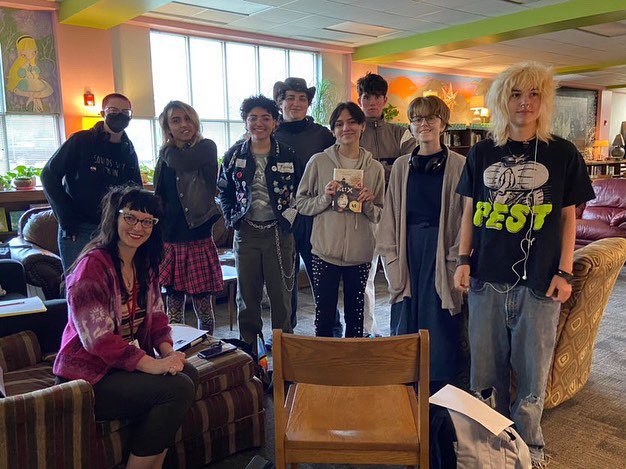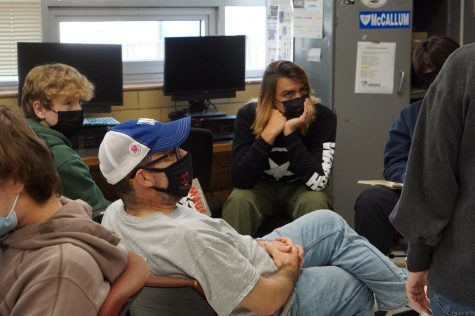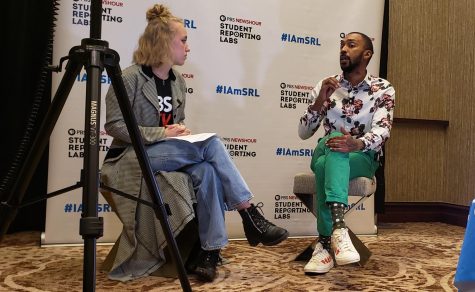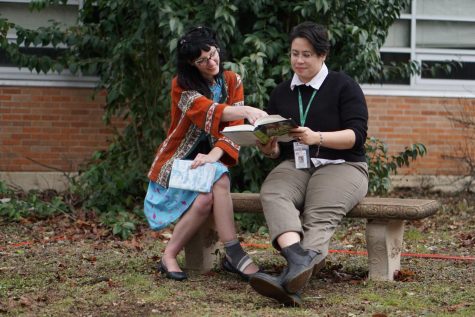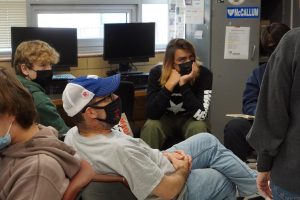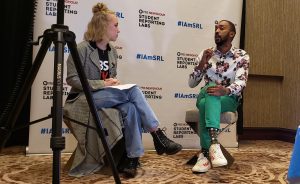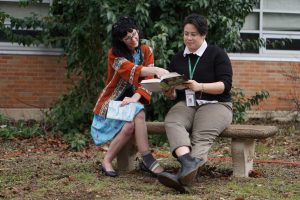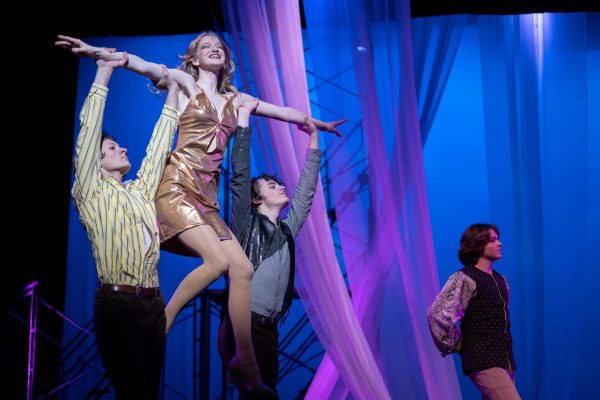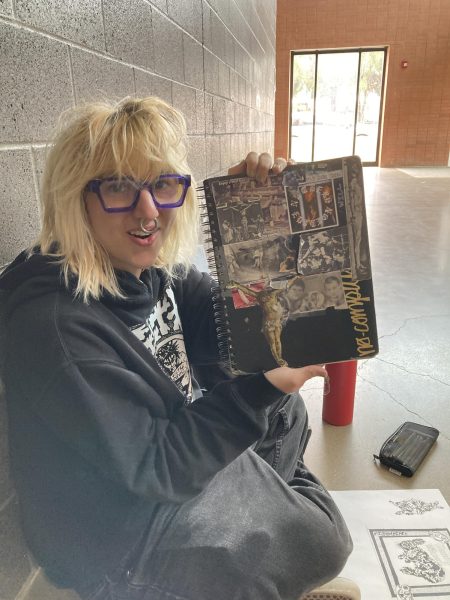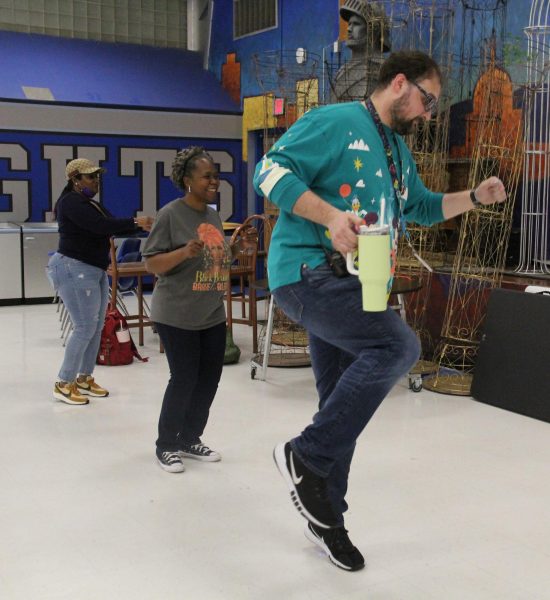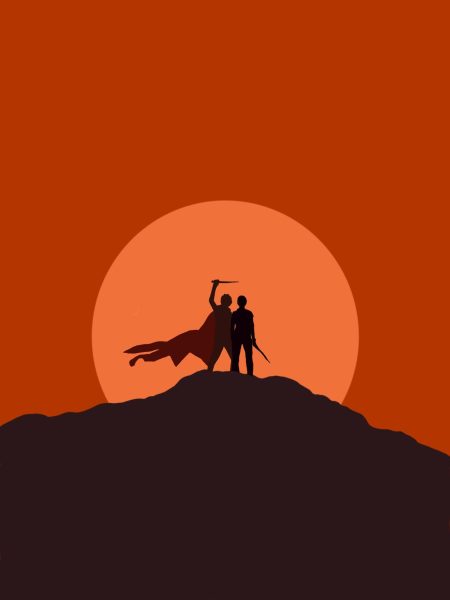Banned Book Club fights censorship, fosters community, conversation … one book at a time
Junior opens discussions, inspires AISD movement
The Banned Book Club takes a moment during a its weekly FIT meeting on March 21 to pose for a group photo in the library. The club discussed the first section of “The Poet X” which was selected by Black Pearl Books for banned book clubs across AISD.
April 12, 2023
When junior Keegan Sarwate heard about schools banning books across central Texas, he knew he had to take action. So he founded the McCallum Banned Book Club.
“I’ve heard about banned books for years, but it being that close to us and something that was very connected to gave me the idea that we should talk about and start spreading more of these stories that are being restricted,” Sarwate said.
My goals are mostly to keep talking about and sharing these books that are being restricted.
— junior Keegan Sarwate
The McCallum Banned Book Club, which meets every Tuesday during FIT, is a space for readers and activists to come together and discuss censorship.
“My goals are mostly to keep talking about and sharing these books that are being restricted and talking about why people are deciding to censor these things and what the issues with that are,” Sarwate said.
Sarwate noticed that discussions about banned books with diverse characters have had a positive impact on club members. The club’s recent book selection was The Poet X, which has been banned in multiple public school districts across the nation because of objections to its sexual references and its storyline about religious struggles.
“[We’re] getting to read and enjoy books that people might not otherwise be able to find or books that have characters that are representative of them, representative of how they feel,” Sarwate said.
When AISD recognized the McCallum Banned Book Club last semester, the district pushed to expand banned book clubs to other campuses. Local independent bookstore Black Pearl Books contributed by selecting and supplying books for each club. Black Pearl Books runs a nonprofit called “Put It In A Book” that, among other initiatives, works with school librarians to create and grow banned book clubs.
“We believe our students deserve to be exposed to the stories of all and by redacting books off the shelves, a message is being sent that those stories don’t matter,” Black Pearl Books said on its website. “Our hope is that by providing titles that spark conversation, understanding, and acceptance, our children will have the courage to live out loud and write their own stories.”
When you try to ban ideas, words, speech and thoughts, what you’re actually banning is certain people.
— librarian Jain Orr
In January, Sarwate was the keynote speaker at the AISD Banned Book Club kickoff event. McCallum librarian Jain Orr was happy Sarwate got recognized for his work to combat censorship. In her mind, censorship goes against the purpose of libraries.
“I saw this quote in the National Holocaust Museum,” Orr said. “It was like, ‘First you burn books, then you burn people.’ I think that’s a really powerful message about when you try to ban ideas, words, speech and thoughts, what you’re actually banning is certain people.”
Sarwate hopes that even after he graduates, the club will continue to serve its purpose as a safe place on campus that lifts student voices.
“Banning something that’s supposed to be in a public space just because it doesn’t align with your personal beliefs or your personal opinions, I think that kind of destroys the point of a public space,” Sarwate said. “Every story deserves to be told, and even if there are elements in it that people don’t want or that are darker or more difficult to read, that doesn’t mean they shouldn’t be read.”




